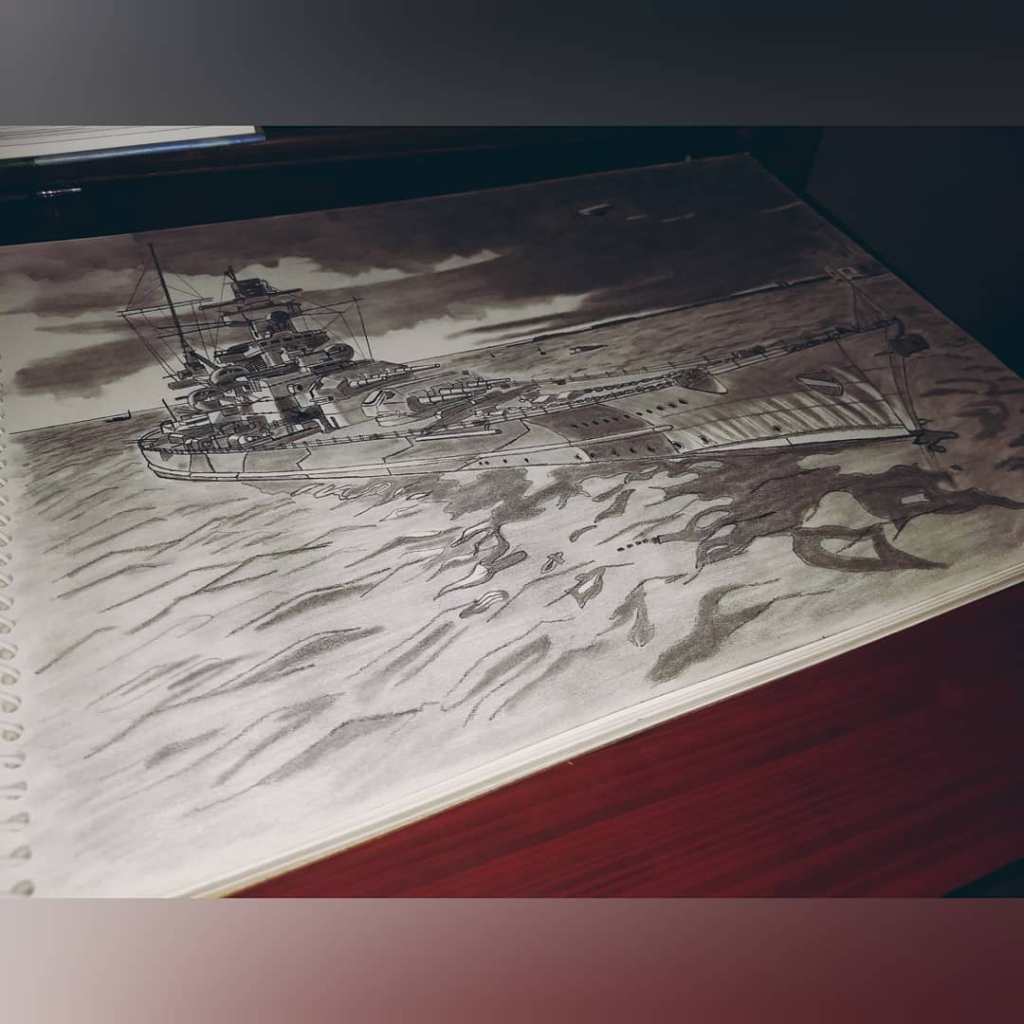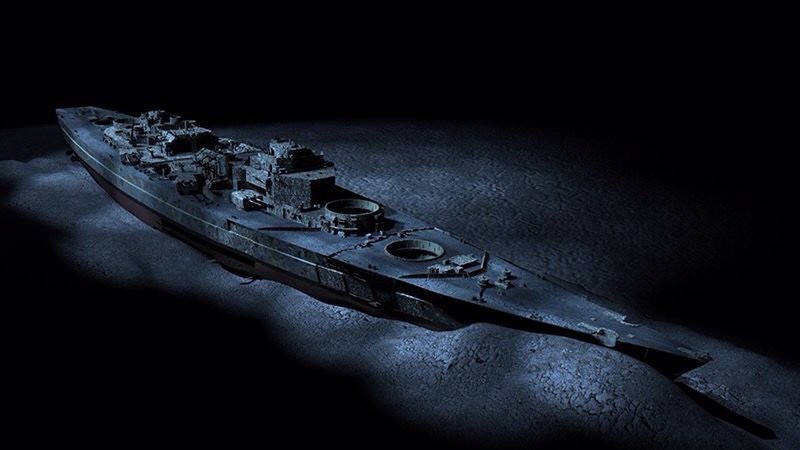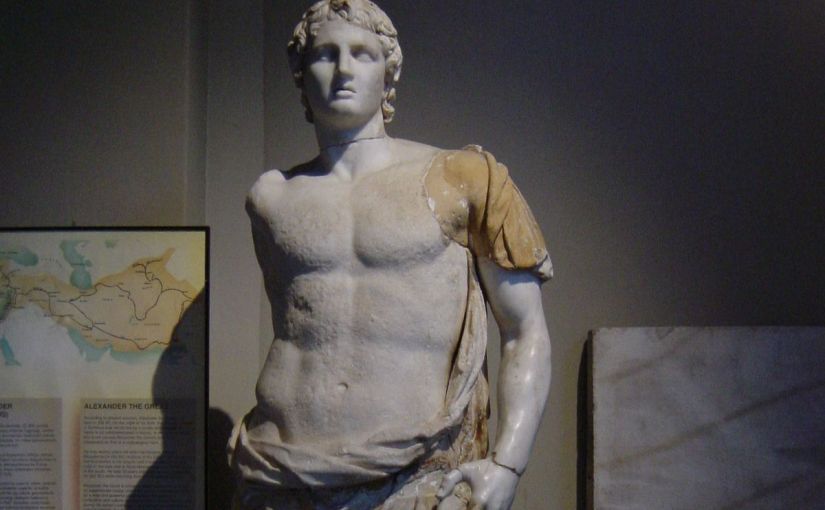The Jurassic park franchise brought forth the dinosaurs from the dusty sedimentary basins of Hell Creek in USA and Flaming Cliffs of Mongolia to the silver screen: while the depiction in 1992 was applauded for being up to date with the latest science, subsequent iterations stuck to the scaly-reptilian model, ignoring the latest findings of many of them having been plumed, sometimes elaborately. However, the franchise became more and more focussed on dinosaur intelligence, especially among theropods (two legged)-velociraptors opening doorknobs, and testing electric fences for weakness. The latest movie took the argument of gene manipulation to explain the “supra-sauroid” intelligence of its prime antagonist: Indominus Rex. Aside from the fact that Jurassic Park liberally substitutes the name for one dinosaur with the other (Archeornithomimus was actually a cousin of the Gallimimus, and in no way related to T-Rex genome, recombinant DNA or not), it got me thinking: what if dinosaurs had more time, say until the Holocene epoch? Would they have grown in intelligence, say, rivaling humans?
The Saarathi-fact or Fiction?
I usually get my epiphanies at around 4 am, right when I’m about to sleep. This particular one was a while ago, sometime last year, when I was reading and watching a lot of the great Hindu Epic, the Mahabharata. Now, this epic is, without any doubt, the best story I have ever heard or read, simply because it seems so real. When I say ‘real’ I don’t mean historically real; real here means that the characters have flaws, they are extremely relatable and have parallels in everyday life. All, except one: Krishna, the Sudarshanchakradhari (Discus-bearer). He seems too good to be true, and the epic tacitly acknowledges the fact by calling him the eighth avatar of Vishnu. That is something that has always nagged at me: while Krishna is my favorite character in Mahabharata, he seems almost unbelievable: in the perfect place at the perfect time at every instance. That got me thinking: what if Krishna was a later addition to the original Epic? It sounds potentially blasphemous, and I don’t doubt that some feathers, especially in religious circles would be ruffled. However, the ability of the “Hindu” religion has been to be able to assimilate diverse opinions without compromising itself. There has never been a Hindu equivalent to the Christian Council of Nicaea, the birthplace of Catholicism, or the Buddhist Council at Kundalavana (under Kanishka, the Kushana ruler, where Mahayana was born), where doctrines were laid and put to rest under (to borrow the phrase from the seminal Kesavananda Bharati Judgement) a “Basic Structure doctrine”. Hinduism, or rather “liberal Aryo-Dravidian-Austro Asiatic culture (with a hint of Tibeto-Mongoloid)” has been fluid, and that is the reason why it has been (apart from Chinese) the only unbroken civilizational culture in the world: nature shows us that ossification leads to decay.
Nemesis
Chapter 1: The Fog of War

December 26th, 2025, North Cape 5:30 pm: The heavy squall hung low over the foreboding horizon: the sound of thunder was approaching closer every few minutes. The crepuscular rays were increasingly being obscured by the cumulonimbus clouds heading in from the east. Alone, amidst the windswept oceanscape, the Atlantic Dusk, a lone fishing supertrawler broke the surface. It had been on a journey two weeks out, and was hauling, under great secrecy, what the fishing industry called ‘precious cargo’. The haul this time of the year was exceptionally good. This was the Atlantic Dusk’s third sortie in two months. There was cheer on board, and the crew were celebrating with some Château Mouton Rothschild and Poker.
“Check.”, said Philippe.
“What are ya saving your pennies for, Phil? Its gonna be payday soon! Gamble like a man!”, yelled Chad across the table. “I raise ya 20.”
“Well, in his defense, he is only losing very slowly. He might outlast you, Chad”, said Finn, putting his chips in the pot. “I call.”
“You’ve been in there forever, boss! Are we not gonna get anything to eat today? I’m so hungry I could dig into our own catch and make some sushi.”, said Chad, looking towards the kitchen.
“It’s almost done. But you are gonna be the last one to eat.” came in the voice from the kitchen.
“The hell I am.”, grunted Chad, putting out his cigarette butt on the table.
“Call”, said Phil.
The last card opened up. Chad cursed.
“I fold. Looks like all my luck went into the catch., I’m gonna get some air. Here, Erik, take my place”, he gesticulated to the tall guy who had just entered the room.
Chad opened the hatch and stepped out onto the deck. The squall was almost up on them. He had been a veteran of 26 years at sea: he could tell that this evening was going to be bumpy. He leaned against the railing, just as the first drops of rain struck his face.
That was when it happened.
He briefly caught the screaming sound of something heavy travelling at blazing speed right over his head, like an aircraft’s engine, before the ship was rocked by a massive explosion that knocked him down. He felt the shockwave moments later, it penetrated to his very spine, like it would almost dislocate every bone in his body. Temporarily deafened, he saw the silhouette of the superstructure, that was on fire, with broken glass everywhere, and his crewmates pouring out to see what had happened.
He looked around wildly, eyes wide open in every direction, and then he saw it: 3 projectiles streaking across the evening sky, right towards their vessel. One landed on the bow cranes, and another massive explosion rocked the ship, setting the bow ablaze.
“What the hell is happening?” someone screamed and shook him. It was Erik.
“I… I don’t know”, he managed to gasp, then tried to compose himself. His brain was running wild “Someone is attacking us.”
Erik pulled him up, and they leaned on the railing for support, looking in the direction from where the shells came. That was when they say it: the silhouette of another large vessel swiftly moving towards them, about 10 miles away.
“Pirates!”, Eric shouted.
Chad knew this wasn’t a pirate ship: It was too big. Pirates usually operated in smaller, overcrowded vessels, which they could ditch after hijacking a bigger vessel, if need be. This was too big, too noticeable, and what was more, seemed to have heavy artillery. He knew of no piracy syndicate that had such ships, and he had seen his fair share of them.
Suddenly his eyes darted towards something in the water: they widened in shock.
“Oh my God! Oh my God!”, he gasped.
A massive fountain of water erupted on the Atlantic Dusk’s starboard side, almost tilting and capsizing the ship. There was a loud explosion from the underwater belt. Chad was thrown off the railing into one of the life rafts. Many of the crew fell overboard, into the freeing water, screaming at the shock of hypothermia. There was pandemonium on deck.
“ERIK!” yelled Chad, “ERIK!”
He got out of the life raft and looked around. Among the few bodies on deck, he saw Erik, impaled in the leg by a piece of metal that had detached from the lifeboat crane. He was moaning in agony, half conscious, half in shock.
He looked around: more projectiles made their way, bolts of pain screaming their way across the evening sky. This time they missed, as the Atlantic Dusk started to maneuver to port. Apparently, Bruce, the captain, had seen the aggressor and was determined to put distance between them. The ship could do a respectable 20 knots per hour and would reach the Norwegian coast in a few hours. The ship seemed to still be afloat, which was a good thing. He needed to tell Bruce what he saw.
“I’ll be right back Erik. Do not try and remove this. The shaft will stem the blood flow for now. I’ll return with first aid.”, Chad said, and opened the hatch into the ship. The mess was empty, with broken crockery and askew ladles and pots.
He moved swiftly and took a couple of flight of stairs and crossed the long corridor, making his way to the ship’s bow. He climbed another flight of stairs and entered the bridge.
“Bruce…”, he said, looking around.
“Bruce is dead”, said a voice to his right. It was first mate Jenkins. “What the hell is going on?? What ship is that?? Are they pirates?”
“I don’t think so”, Chad sighed. He liked Bruce. He was one of the few people on the ship he respected. Bruce would discuss a lot about ships with him: a subject that they both were knowledgeable about. The Atlantic Dusk had been his retirement plan.
“They have heavy artillery. Cannon of sorts. Not sure what kind, but I do not think we could take much more of that. And they torpedoed us. It is a miracle we are still afloat. Just run.”
Jenkins nodded. He was sweating, despite the cold.
Chad sat down with his head in his hands, right on the floor. His temple was throbbing, and he could feel the warm gush of blood staining his palms.
“There are sailors on deck that need help. Erik… Erik looks bad. Send someone to help them”.
Chad got up suddenly.
“Jenkins lend me your binoculars”. He said urgently. Jenkins took them off his neck and gave them to him.
He looked out. The other ship had disappeared amidst the squall. Apparently, it seemed to be a blessing, giving them the breathing space to turn and run. And the high waves would make it difficult to land accurate shots. But he felt curious. Warships today did not have artillery: they had guided missiles, not cannons. It was too large to be a destroyer, it was surely not an aircraft carrier, and was definitely not coast guard. They were too far away from the shore, away from territorial waters. Piracy seemed to be the only logical conclusion.
“Chad, sit down, you have a good knock on your head. Let us look at it”, Jenkins motioned to one of the men in the room, while he peered out of the bridge. He took the binoculars back and looked at the horizon through them.
******************************************
6:54 pm: An hour had passed. They were moving along, although at a slower speed of 16 knots, because the torpedo hit had damaged the power plant, and it had taken in ocean water. They were still repairing it in the decks below. 6 of their men were reported missing, including Philippe. Erik was on marijuana, because they didn’t have morphine. The shaft would have to be taken out when they reached land. The squall raged on, with no signs of ebbing.
Jenkins was talking to the Norwegian coast guard over the wireless. He came over to Chad.
“Definitely wasn’t them.”, he shook his head. “I need you to tell me what I saw.”
“Meteors streaking through the sky”, Chad said “Only much lower, and much louder.”
“Did you get a good look at the ship?”, Jenkins raised his eyebrows.
“It was hazy.”, Chad said “But I could tell you that their ship was bigger than ours. And reinforced.”.
Chad became quiet for a while, then said “Could it be a TransStar vessel?”
TransStar Marine was a rival company to Beachen Inc, for which Atlantic Dusk ran frequent sorties. They were the ‘bad boys’ in the fishing industry, openly flouting international conventions and Corporate Laws. With Arctic cod stocks dwindling, it would not be surprising that TransStar Marine would attempt to poach on vessels and their catch. The company was notorious for being funded by, among others, the Yakuza through shell firms. But they would have to log the ship with the government, and it would be public knowledge.
“Captain!”
Chad was shaken out of his reverie. He got up and looked out. He did not need his binoculars this time: what he saw made his blood curdle.
Their attacker was less than 3 miles away, clearly visible despite the squall. It was moving in parallel with them, easily keeping up. It looked weather beaten, like a ruin come to life. It sat low and long in the water, as if designed for speed. Chad could distinctly make out the outline of three massive gun turrets, slowly turning towards the Atlantic Dusk. The funnel on the ship was billowing black smoke. Smoke? No, that couldn’t be right! No ship in any country’s navy he knew of had those traits. He looked on, petrified and mesmerized, like a deer looking into the eyes of a lion. His eyes lingered on towards the bow, which sank in and out of water, with a German flag…
Wait! That is not Germany’s flag! But he recognized the distinct corrupted Swastika immediately. But this could not be. It was impossible, that ship had been sunk years ago…
“Scharnhorst!”
The Scharnhorst’s guns roared, and 9 shells ripped into the Atlantic Dusk’s hull, punching holes, and starting massive explosions on the ship. One of the shells blasted a hole through the bridge, killing everyone in there. Many sailors jumped into the water, as more and more of the Atlantic Dusk became a smoldering wreck under relentless assault by the German Raider. Slowly flooding, the ship began to tilt towards port and sunk by the bow. The Scharnhorst disappeared as suddenly as it had arrived, back into the squall. No survivors from the Atlantic Dusk were found.
The Story of Bismarck (IV): Bismarck’s Knell
This article is the final part in a series of four articles about the battleship Bismarck
May 25, 1941: No one in the British Admiralty office slept that night; the disappearance of the German battleship from right under their noses was a tough pill to swallow. The British public would never forgive this slight, especially after the loss of their beloved Hood. Churchill had instructed Admiral Dudley Pound to convey all updates directly to him. More than a tactical move, the search for the Bismarck became a prestige issue- the Hood needed to be avenged.
In the Atlantic, Bismarck was on course southeast towards Brest in occupied France. Lutjens had managed to shake off his pursuers, but tragically, he didn’t know of his success. He overestimated British radar capabilities, believing that while he had put some distance between the Norfolk and others, he was still on their radar. And so, inexplicably, he broke radio silence multiple times, sending information to the German headquarters about his intended route to Brest and requesting Luftwaffe air assistance. The code being used by Lutjens was similar to the one found aboard a captured U-Boat a few months earlier. This allowed British cryptologists at Bletchley Park to decode vital information. Most notable among these was Alan Turing, who broke the naval Enigma code.
Continue reading The Story of Bismarck (IV): Bismarck’s Knell
The Story of Bismarck (III): The Battleship Disappears
This is the third part of a four part series on the battleship Bismarck.
The next day’s newspapers around the world carried but one news:

The short but shattering battle with the Royal Navy in the Denmark strait had left the German sailors in awe of their ship and of naval combat in general. Admiral Lutjens, though calm on the surface, was alarmed. He knew of the Hood’s fame, and was under no illusions about what the British would do next. The reassuring news was that while the Bismarck had lost a bit of speed, it was still cruising at at least 28 knots, which was on par with the fastest British battleships. As long as Lutjens could maintain distance, he was not under immediate threat.
Continue reading The Story of Bismarck (III): The Battleship Disappears
The story of Bismarck(II): The Denmark Strait
This is the second of a four part series on the Battleship Bismarck
In the early hours of May 19, 1941, the Bismarck departed Gotenhafen, escorted by 3 destroyers (or small torpedo boats); the Prinz Eugen had already departed a few hours earlier. They wove across Kattegat and Skagerrak in poor weather, but were seen by Gotland, a Swedish cruiser, who forwarded the report to the Allied Naval HQ. For his part, Admiral Lutjens was sailing blind, since the same poor weather that was supposed to facilitate the Bismarck slipping unseen out into the Atlantic also prevented German aerial reconnaissance. The Gotland was also spotted from the Bismarck, but the Germans were not sure if the neutral Swedes would relay the information to Britain. However, it became clear that the Operation Rheinübung was no longer a secret.
Continue reading The story of Bismarck(II): The Denmark Strait
The Story of Bismarck: The Road to Gotenhafen
This article is the first of a four part series on the story of the KMS Bismarck.
While reading of important events about World War-II, I was fascinated by its naval aspect, which is often eclipsed by its terrestrial aspects. The two theaters of this conflict were the Pacific and the Atlantic. In the Pacific, Imperial Japan threatened South East Asia, including various archipelagos in the Pacific, competing with the United States, which had hitherto held an implicit sway over the Philippines. The Atlantic was characterized by what became later known as the ‘Battle for the Atlantic’: a period of time where a rapidly expanding Kriegsmarine, (the German Navy) threatened British supremacy at sea, as well as the vital Allied shipping lanes that supplied Great Britain from the United States. After the Battle for Britain (1940), where the Royal Airforce routed the Luftwaffe (German Airforce), Germany attempted to disrupt Atlantic shipping lanes through raider operations on merchant convoys, often supplemented by the submarine ‘U-Boats’. It was during these operations that the battlecruisers Scharnhorst and Gneisenau earned their fame through their famous ‘English Channel Dash’.
Continue reading The Story of Bismarck: The Road to Gotenhafen
Alexander ante Portas
Alexander III of Macedon (a principality in Northern Aegean), would grow up to become the founder of the world’s first cross-cultural empire in the true sense; an empire spanning 5,200,000 km2, with Greek, Persian, Egyptian, Indian and other subjects would compel history to confer on him the epithet of “ὁ Μέγας ” (ho Mégas/the Great). The breadth of his achievement is nothing short of breathtaking, taking into account both the constrained logistics of transport of the times, as well as the young age at which he died. It can be safely assumed, today, that he was almost perpetually on the march, save for recuperation after a particularly difficult siege. His forces were almost always outnumbered, yet he was defeated only by his own mortality, which finally enveloped him in the grand palace of Nebuchadnezzar II at Babylon (323 BC).
As people rely more and more on technology to solve problems, the ability of humans to think for themselves will surely deteriorate. True or False?
Technology is the inevitable outcome of a larger brain function: this was the evolutionary pathway that the Homo Sapiens chose, about 2 million years ago. The Neolithic revolution, facilitated by inventions, such as the wheel, plough, pottery and fire, led to urbanizations, facilitating the rise of secondary crafts and future technologies.
This pattern was repeated in the Industrial Revolution: the invention of steam engine enabled further technological progress that encouraged human beings to think with increasing complexity, and, in a positive feedback loop, fuelled still more inventions.
The march of science and technology has led to solutions in various fields: economic, social, political and scientific. Whether it is reforms in the electoral process through electronic voting machines, or the construction of the Large Hadron Collider, it has been the result of creativity spawned by the human mind. Once century’s magic is another century’s science: indeed, if a medieval Duke walked into the twenty first century today, he would be dazzled by the creations of the human mind today. Technology pervades every aspect of our life, whether it is the alarm we wake up to, or the conference we schedule with clients halfway across the world. Artificial intelligence and Big Data are set to fundamentally bring about a paradigm change within societies themselves. All this has led to fears about the “dependency syndrome”, and even hyperboles of “slavery to the machines”.
The idea that technology would lead to vestigiality of certain functions, however, is not without merit: urbanization, for instance, has led to loss of certain capabilities-we cannot navigate without a GPS today, whereas, birds and animals can and do so regularly. However, the key term here is “qualified”, i.e. the degree of tradeoff that we, as species, accepted in our evolutionary pathway. While it is true that there are increasing cases of social disconnect due to networking sites, it is also true that the nature of the world has changed: it is not possible for expatriates to regularly meet their families physically. Technology created globalization, but also spurred intelligence to create tools for solving the problems it created.
That is the crux of it: people, since the palaeolithic times have always relied on technology. However, such technology, while solving certain problems, gave rise to their fair share of the ones, which in turn, require higher complex cognitive functionality of the brain. This cycle-counter cycle cannot be broken through the Luddite way: by regression into the past. Rather, understanding the social and economic realities of the present and devising means through enhanced emotional, social, and cognitive intelligence is the best way towards true sapience.
Image sourced from comptia.org
#4amEpiphanies
“You become a statistic upon your death. Live in such a way that it is not the only statistic you are remembered by.”
-Original
image sourced from Danbeltranmusic.com
Two Self Defeating Arguments?
The Sunrush (1993-2017 when solar energy grew exponentially) coupled with the recent INDCs agreed at the COP21 in Paris (2015) have led to mainstreaming of Climate Change and the emissions problem like never before. The main emissions around the globe occur in the transport and the industrial sector, or more specifically the thermal sector using fossil fuels. The search for alternatives has led to initiatives like International Solar Alliance and the concept of Green Economy and LEED of USGBC (US Green Building Council), among others. Here I will attempt to present (and critique) my view about why Hydrogen might be an answer (and why it is important to pursue it seriously), in association with solar, wind and tidal energy. Then I shall veer off into what is perhaps a more ridiculous (and thus incorrect) source at the moment.









